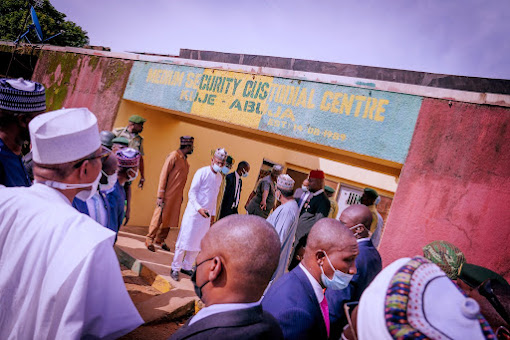By Chidi Odinkalu
November 28, 1988
was a Monday. In Abuja, Nigeria’s Federal Capital Territory, FCT, a Constituent
Assembly inaugurated by military ruler, Ibrahim Babangida, had been in session
for just over six months since May 11, 1988. At the helm as its chair was Anthony
Aniagolu, then a recently retired Justice of Nigeria’s Supreme Court. He was a
Christian from Enugu State. His deputy was Muhammadu Buba Ardo, then Chief Judge of Gongola
State, who died suddenly in 1991, two years after the Assembly completed its
work. He was Muslim.
*Buhari
The Secretary to the Constituent Assembly was one Alhaji
Babagana Kingibe, whom the country has since then got to know a lot more
eloquently, a Muslim from Borno State. Kingibe’s assistant was Amal Inyingiala
Pepple, who would rise to the height of the civil service in Nigeria, before
retiring in June 2009 as the Head of Service of the Federation. She is a
Christian from Rivers State.
In those days, Nigeria had 21 states: Akwa Ibom, Anambra,
Bauchi, Bendel, Benue, Borno, Cross River, Gongola, Imo, Kaduna, Kano, Katsina,
Kwara, Lagos, Nigeria, Ogun, Ondo, Oyo, Plateau, Rivers, and Sokoto states,
plus the FCT.
The Constituent Assembly, which Justice Aniagolu chaired,
comprised 567 members drawn from all these states. A total 458 were elected, while
109 were nominated by the Federal Government, including the Chairman and his
Deputy (both of them male), and drawn from the ranks of judicial figures,
senior lawyers, titans of industry, traditional rulers, experienced public
servants and administrators, academics and other professionals.



















.....jpg)
